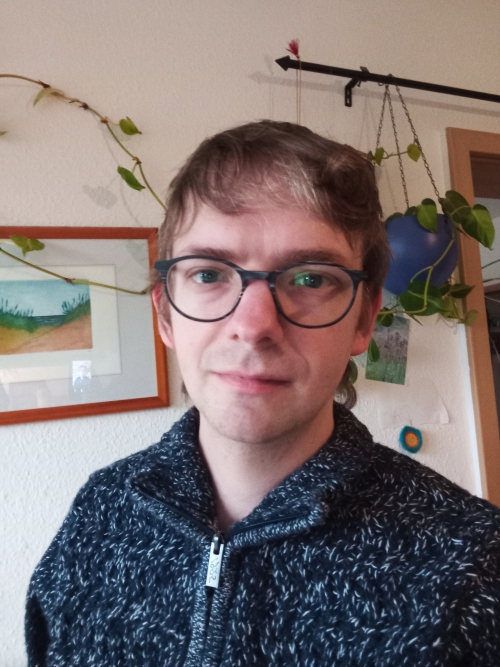
Dr Felix Schniz is the co-founder and programme director of the master’s programme Game Studies and Engineering at Klagenfurt University. He graduated with a Bachelor of Arts in English and American studies from the University of Mannheim, where he subsequently joined the master’s programme Cultural Transformations of the Modern Age: Literature and Media. After asking ‘What is a Videogame Experience?’ In his dissertation, his contemporary research focuses on the meaning of experience, peripatetic meaning-making, the genre theory of virtual worlds, and the subjective quality of the medium videogame.
Co-Author:
Christoph Kaindel – Wiener Bildungsserver (Vienna Education Server)
A Walk in the Park? Designing a Very British Gaming Experience
FROG 2022 – Talk
AI-generated content is the most recent trend in procedural, computer-powered art. Set the parameters and let the voice of the machines answer any muses calling – but is it really that easy? This talk challenges the limits of (self) generated content by focusing on a particularly British creation: The landscape garden in the tradition of Lancelot “Capability” Brown and other 18th-century landscape architects.
In order to triangulate the love/hate relationship between humans, computers, and interactive art, we approach the topic from two counterpointed philosophies. On the one hand, we provide the perspective of the landscaper, architect, and designer. It intends to take the audience from the concrete rules of gardening and landscape to the adaptation of these virtual environments and into the hypothetical field of procedurally generating such landscapes in video games for playful exploration. On the other hand, we enter these playgrounds from the perspective of these very explorers: the real and virtual flaneurs. We provide an overview of British walking traditions, the concept of flaneurism, and how far it may help us understand the appeal of video game genres such as the walking simulator.
Our thesis, which serves as a leitmotif through this back and forth, is that landscapers and flaneurs are equally artists, striving to achieve beauty in their deeds. At the same time, however, they are equally entangled in freedoms and oppressions due to their relationship. Our talk juxtaposes the freedoms and strict rules of landscape creators to the free will – or the lack thereof – of the promenading explorer setting out to make specific experiences. Through these interplayed observations, we ultimately challenge the concept of artistic creation of the human being in the digital age and ask, in conclusion, and together with the audience:
How can we quantify the logical rulebook of virtual landscape gardens – and if yes, would we even desire to do so?









